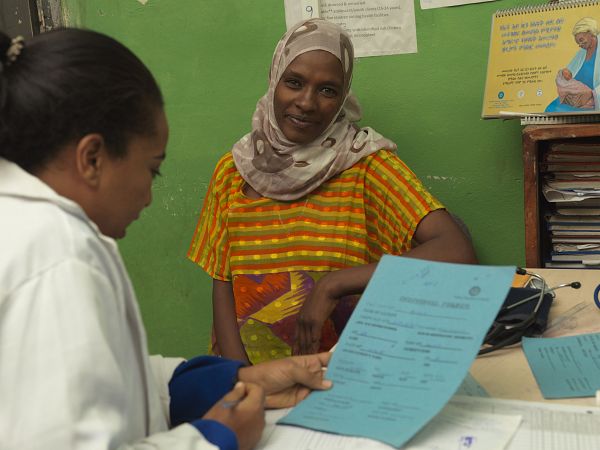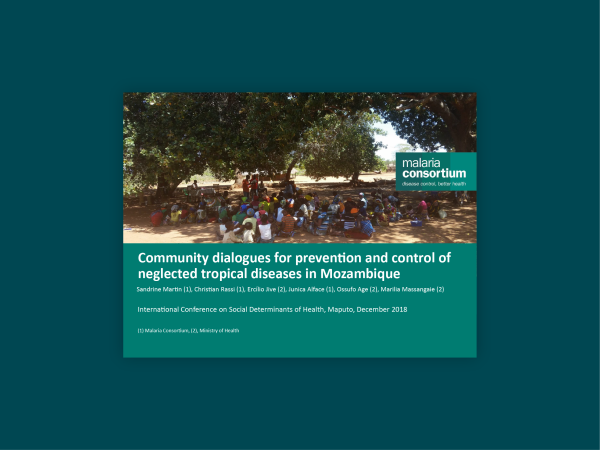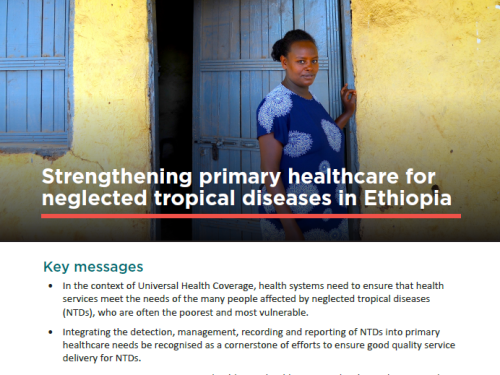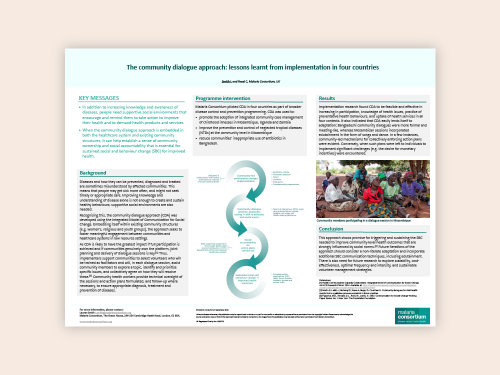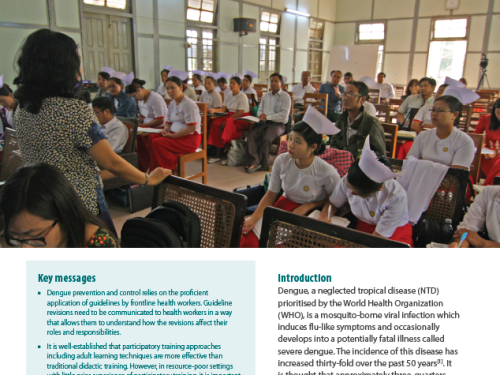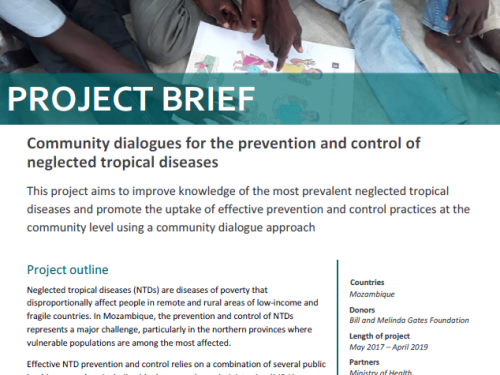Project overview
COMDIS-HSD is a Research Programme Consortium (RPC) which carries out research projects across a variety of settings in order to improve delivery of health services for underserved populations, with a focus on communicable diseases. The RPC is funded by the UK Government and coordinated by The Nuffield Centre for International Health and Development at the University of Leeds. Malaria Consortium is one of six COMDIS-HSD partners.
COMDIS-HSD seeks to influence policy and practice by focusing its research on seven thematic areas:
- Community interventions;
- Minimising drug resistance;
- Primary care services;
- Urban healthcare;
- Accessible and user-friendly services;
- Health behaviour change;
- Quality of care;
The programme is guided by the principle that research should be embedded within ministries of health and national programmes to ensure that research findings are rapidly incorporated into policy and practice. This means close cooperation with stakeholders to ensure that the research is aligned with national priorities.
Malaria Consortium currently has six projects that are carried out under COMDIS-HSD.
- Assessing and addressing barriers to IPT2 uptake in Uganda: this project focuses on identifying obstacles, both on the supply and demand side, and proposing solutions for improving the uptake of intermittent preventive treatment in pregnancy (IPTp), a strategy recommended by WHO for the prevention and control of malaria in pregnancy.
- Exploring factors which affect the rational use of antibiotics at community level in Zambia: this study provides evidence on the rational use of antibiotics by community health workers and caregivers to inform future implementation of integrated community case management (iCCM), ensuring access to care whilst minimising development of antibiotic resistance.
- Evaluating integrated community case management in rural and peri-urban settings in Uganda: this study aims to inform decision making on whether the iCCM strategy should be tailored differently depending on local contexts.
- Community dialogues for the prevention and control of neglected tropical diseases: this project assesses the effectiveness of the community dialogues approach to enhance community participation, improving knowledge and practices for the prevention and control of neglected tropical diseases (NTDs) in Mozambique.
- Supporting effective rollout of dengue prevention and control guidelines in Myanmar: This study compares two approaches to rolling out the revised dengue guidelines for healthworkers.
- Primary health care for neglected tropical diseases in Ethiopia: This study tests materials and tools designed to strengthen the primary health care system’s capacity to detect, manage and record cases of five target NTDs.
